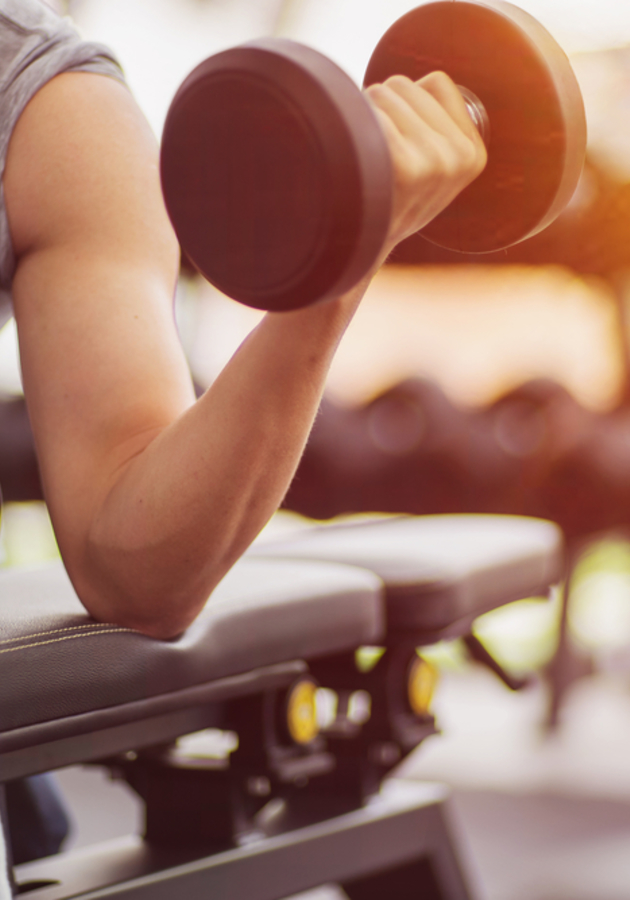Tired of dieting? What about a diet that breaks all the rules and, yet, burns your fat overnight? Fitness expert Joel Marion offers one such diet in his bestselling book “Always Eat After 7 PM.” Get ready to learn why it works!
The problem with traditional diets
According to the Boston Medical Center, about 50 million Americans diet each year and spend more than $30 billion on weight-loss products in their pursuit of trimmer, fitter bodies. Dieting, in other words, has become an American pastime and a multi-billion dollar business. It’s no wonder that nowadays, there seems to be as many diets as there are dieters. Low-carb diets, low-fat diets, the paleo diet, the vegan diet, the Atkins diet, the low GI diet, the Zone diet – you name it, and there are probably about a hundred books written about it. The problem? None of them really work.
“Typical ‘dieting’ is perhaps one of the most frustrating practices that just about everyone has attempted at one point or another,” comments Marion. “It’s not fun, it gets old, and it rarely works.” There are a few reasons for this. Here are three:
- Traditional diets are boring. Most diets are “extremely narrow with regard to food choices and variety.” Many, such as the low-carb or low-fat diets, even limit entire macronutrients altogether. However, we are all humans and humans are omnivores by definition. When you diet, you are setting yourself up against thousands of years of evolution.
- Traditional diets require that you give up your favorite foods. It is unrealistic to expect that you will spend your entire life not having another bite of pizza or tasting another chocolate chip. One day, temptation will bring out what is really in your heart, with guilt and self-hatred following. But it is not you that has failed, remarks Marion – it is the diets that have failed you.
- Traditional diets yield insubstantial results. Our brains and bodies are built to expect their efforts rewarded. The problem with most traditional diets is that they are not rewarding enough. Hard work with no reward leads to quitting, and quitting brings self-doubt. Once again, it’s not your fault. It’s just that most diets are too restrictive in many aspects and bring results in only a few.
Eating food after 7 PM: the science
Unlike most other diets, Marion’s trademarked Always Eat After 7 PM diet is not restrictive. It goes against common wisdom in at least three regards. First of all, it does not prohibit habits such as snacking or supposedly fattening macronutrients such as carbs. Secondly, it doesn’t consider breakfast the most important meal of the day; in fact, its main advice is that you skip it. Third, and most obviously – well, the name is a bit of a giveaway – Marion’s diet suggests eating mostly at night, after 7 PM. Let’s start right there. Isn’t this dangerous? Doesn’t eating late at night lead to obesity and excess belly fat? Well, no, says Marion, it doesn’t. And we know this for a fact.
A few years ago, Brazilian researchers randomly assigned obese women to a low-calorie diet in three separate groups. The first group of women was asked to eat five meals spread throughout the day. The second group consumed the same number of calories, but was allowed to eat only between 9 AM and 11 AM. The third and final group of women consumed all their meals between 6 PM and 8 PM. At the end of the 18-day experiment, the women in all three groups lost weight. “In a highly controlled setting,” the researchers concluded, “when food choices and portion sizes are consistent, eating at night doesn’t negatively affect weight loss.”
These results have been replicated numerous times since then, most famously in a 2013 Israeli study reported in the health journal “Nutrition, Metabolism, and Cardiovascular Diseases.” The study pitted huge-dinner eaters against huge-breakfast eaters over a period of six months. All participants ate pretty much the same low-calorie meals, but they ate them at different times of the day. The huge-dinner eaters felt better throughout the entire study, lost 11% more weight and 10% more body fat, and had more favorable changes to their hunger and satiety hormones (ghrelin and leptin). In other words, when it comes to weight loss, dinners may be helpful.
Breakfast: the five biggest myths and facts
It’s one thing to say that late-night eating is not as bad as you think, but it is a completely different thing to claim that you should prefer it to breakfast. After all, isn’t breakfast the most important meal of the day? Does it not boost your metabolism and help you lose weight by preventing midday hunger? “Of all the eating and dieting myths,” replies Marion, “what we’re told about breakfast might be some of the most misleading.” Here’s his “reality check on the five biggest myths surrounding breakfast”:
- You should never skip breakfast. Virtually the opposite is true: you should almost always skip breakfast. According to a 2019 meta-study published in the “British Medical Journal,” eating breakfast sets your metabolism up for craving more calories throughout the day. In other words, it is not a good strategy for losing weight.
- Breakfast eaters lose more weight. As stated by a recent study published in the “American Journal of Clinical Nutrition,” skipping breakfast has a bigger effect on weight loss than eating breakfast.
- Breakfast increases your metabolism. Neither breakfast nor dinner really affects your metabolism. Whenever you eat, your body uses the food for energy in the same way. Your metabolism will not slow down if you skip your breakfast or eat late at night.
- Eating breakfast reduces daytime and nighttime hunger. Once again, the opposite is true. By elevating the levels of insulin in the body early, you are stimulating the release of fat-storage hormones and, rather than suppressing your appetite, this actually makes you hungrier.
- Skipping breakfast makes you gain weight. Of course it doesn’t! Skip any meal any day and it will only have positive effects on your weight. On average, cutting out breakfast may curb your overall calorie intake by up to 400 calories a day.
The magic of intermittent fasting
Marion’s Always Eat After 7 PM diet is actually a form of a popular, extremely beneficial dieting pattern called intermittent fasting (IF) or time-restricted feeding (TMF). In essence, the diet suggests cycling between fasting and eating throughout the day so that you give your body enough time to convert the stored fat into energy and, in doing this, help it regulate the hormones that affect your hunger, blood sugar levels and metabolism.
The science is fairly simple. When you eat anything, the levels of insulin in your blood rise to stimulate the breakdown of the consumed nutrients into the simple sugar glucose, the most important source of energy for your body. Your body uses the necessary energy for many purposes such as growth, repair and maintenance and stores the excess as fat. Between meals, leptin, the so-called “fullness hormone,” signals your body to break down the stored fat into energy. If you do not eat anything during this period, your body will use your fat as food and release the hunger hormone (ghrelin) when it doesn’t have any fat left. However, if you do eat something, the levels of insulin will rise again and this will prevent the further breakdown of fat by inhibiting the release of leptin.
Eating several times a day keeps your insulin levels consistently high and makes you resistant to leptin. In other words, you never feel full. At the same time, you stimulate your body to store everything you eat as fat rather than converting the fat into energy. Intermittent fasting deals with this potential imbalance by forcing your body to convert the fat into energy during your fasting periods. That way, it also beats hormone resistance by keeping insulin levels super low and naturally boosting leptin and other fat-burning hormones (growth hormone, adrenaline, and glucagon). As a result, you burn significantly more fat while giving your digestive system and metabolism a break from frequent feeding.
There are several ways to practice IF, but the most popular one – and the one Marion most happily recommends – is the 16/8 protocol, which involves 16 hours of fasting and an 8-hour feeding window. It’s as simple as this: if you eat your last meal of the day at 8 PM, eat your first meal the next day at noon, and then eat another meal in between, during the feeding window. Follow this protocol six days a week and give yourself a break on Sunday. With your hunger and satiety hormones well-adjusted, you can allow yourself an early morning breakfast one day per week, with no consequences whatsoever.
Always Eat After 7 PM: burn fat in three easy phases
In addition to encouraging intermittent fasting, Always Eat After 7 PM is, in the words of Marion, “a three-phase program that teaches you how to lose big by strategically eating big when you are naturally hungriest – in the evening.” Here is a brief summary of these phases:
- The acceleration phase. Designed to give you rapid results in the first two weeks, the acceleration phase is “a short, dedicated ‘sprint’ to get things going quickly.” During this phase, to shift your body quickly into fat-burning mode, you should abstain from eating carbs and ramp up protein intake. In addition to eating a variety of protein choices, in the acceleration phase you should also eat a lot of non-starchy high-fiber vegetables to increase your digestive health and fight cravings. Finally, instead of starting your day with a big breakfast, you should begin with a “3-Minute Fat-Burning Morning Ritual.” To be more precise, instead of eating anything, have one of the following easy-to-fix fat-burning drinks: lemon water, mint citrus water, cinnamon and apple cider vinegar drink, super greens drink, black coffee or green tea.
- The main phase. There’s a good chance that you might lose more than 10 pounds during the acceleration phase. However, don’t get too carried away: sprints are unsustainable by definition. So, once you hit week three, it’s time for some stabilization. Unlike the sprint of the first two weeks, the main phase allows larger portions and a higher calorie intake, including cheat days. During this phase, you should continue with the 3-Minute Fat-Burning Ritual in the mornings, while adding lots of fruits, vegetables and carbs to your lunches and dinners. The target calorie goals during the main phase are 1,300 to 1,500 a day for women, and 1,700 to 1,900 for men. Intermittent fasting should be used six days a week from here on out.
- The lifestyle phase. Your weight loss will slow down during the main phase, but that’s a good thing. Once you hit your weight goal, it’s time for the lifestyle phase, “a more laid-back version of the main phase” with even fewer restrictions. “If Phase 1 is a sprint and Phase 2 is a moderate jog,” writes Marion, “Phase 3 is a leisurely walk in the park grounded in the habits formed in the other stages of the program.” The goal of the lifestyle phase is to maintain your weight loss – a goal very few diets have. The target calorie goals are the same as the main phase. However, in the lifestyle phase, lunch portions can be up to 50% larger.
Final notes
“Always Eat After 7 PM” encourages replacing breakfast with a healthy drink and fasting for six days a week. Though the book comes with more than 70 recipes and several guidelines, essentially the rest remains pretty much up to you.
Now, isn’t that a great diet?
12min tip
Eat not when your schedule says you should, but when you are hungry. Skip breakfast. Fast for 16 hours a day.





























